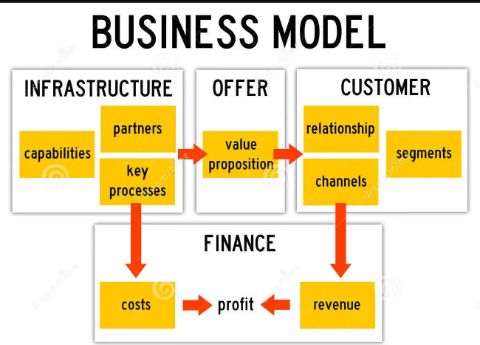Financial modeling can help small businesses and startups since it provides an overview of specific company situations, enhances decision-making processes, allows you to understand where your organization can successfully scale, and maximizes opportunities and profitability.
It’s essentially a “what if” tool for testing company scenarios and examining how various factors, such as possible product price rises or staff compensation increases, may affect profitability.
Startups can use financial modeling to create scenarios and assess potential outcomes. Models are developed and evaluated based on certain characteristics that are directed by a company’s objectives, and they provide insight into financial performance, providing your firm with knowledge about future financial results.
Financial modeling provides startups and small enterprises with strong predictive capabilities, helping them to foresee their organization’s future. A solid financial model can also assist firms in the following ways:
a. Validate key drivers for your business by testing assumptions.
b. Contrast various business options, such as pricing models.
c. Determine the actual amount of capital required to launch your business.
d. Work out your burn rate.
e. Plan out your user growth.
f. Create a budget.
g. Be more prepared when speaking with potential investors, and effectively communicate profit projections.
Building a financial model isn’t simply for show. When done correctly, it can help you better understand your business, whether it’s a startup or an existing business that you’re developing.
Using Simplistic Financial Models to Understand Business Scenarios
Overcomplicating financial models are detrimental to firms and can result in a sloppy approach to projecting corporate performance. It’s a delicate balance, especially since the “garbage in, garbage out” data principle applies to these cases.
Small firms require a straightforward, succinct, and easy approach to financial modeling. For example, a retail startup or small firm may want to use customer-centric financial modeling to assess how many customers are in their market, what percentage of these customers might potentially be acquired, and how much profit your organization would receive from these customers.
Small business owners may make sound decisions based on data. Various hypotheses can be explored using a financial model before making big financial decisions, providing firms with an insight into the probable best-case and worst-case scenarios.
Measuring Startup Outcomes Through Financial Modeling
Knowing what situations or events will have an impact on your company’s profitability, sustainability, and longevity will help you plan for the future. Measuring your company’s health and potential is essential for financial budgeting and developing sensible business strategies.
Research Optimus, a reputable international research and analytics firm with over a decade of expertise providing financial modeling solutions to startups, may assist businesses. ROP provides comprehensive analytics and financial modeling to small business models, allowing them to get important insight into their future performance.











